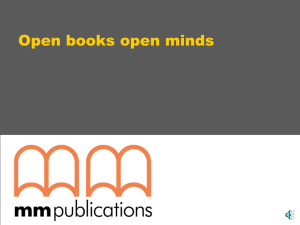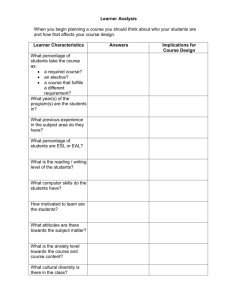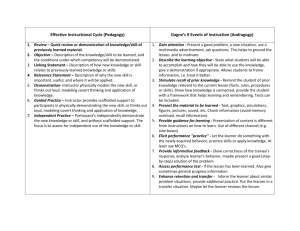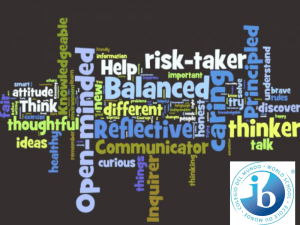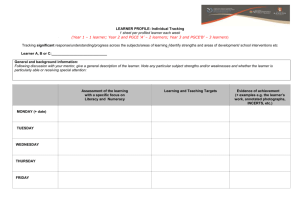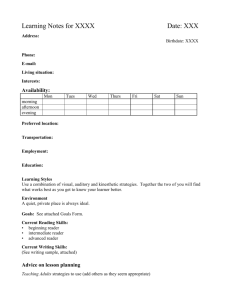Phonics - English Language Partners
advertisement
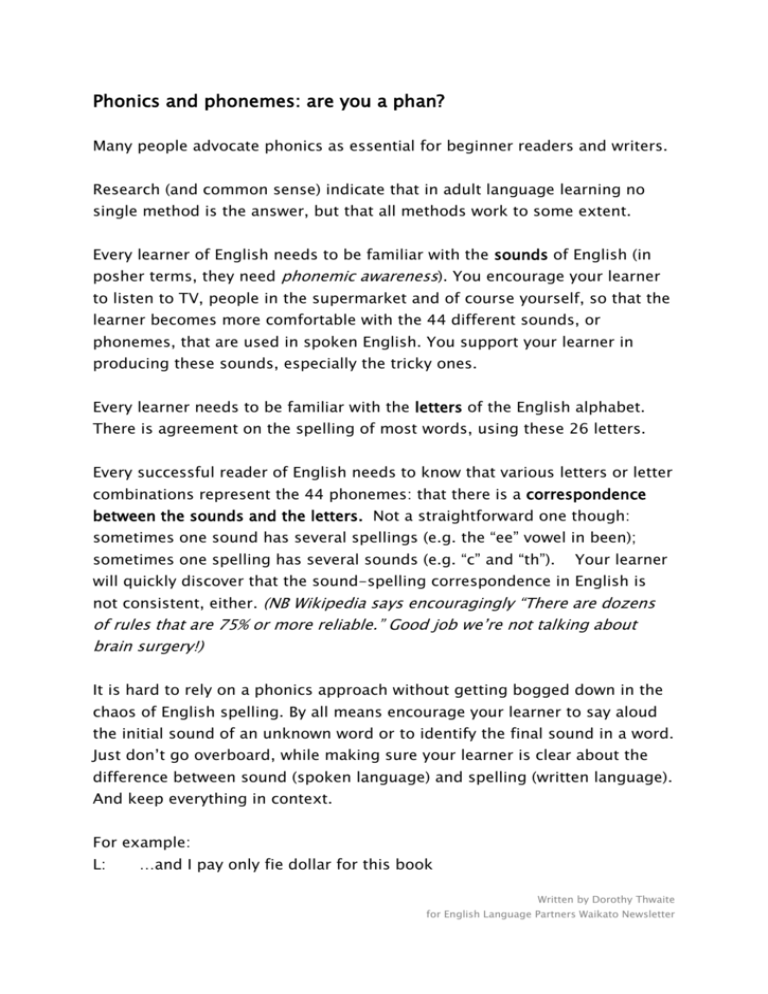
Phonics and phonemes: are you a phan? Many people advocate phonics as essential for beginner readers and writers. Research (and common sense) indicate that in adult language learning no single method is the answer, but that all methods work to some extent. Every learner of English needs to be familiar with the sounds of English (in posher terms, they need phonemic awareness). You encourage your learner to listen to TV, people in the supermarket and of course yourself, so that the learner becomes more comfortable with the 44 different sounds, or phonemes, that are used in spoken English. You support your learner in producing these sounds, especially the tricky ones. Every learner needs to be familiar with the letters of the English alphabet. There is agreement on the spelling of most words, using these 26 letters. Every successful reader of English needs to know that various letters or letter combinations represent the 44 phonemes: that there is a correspondence between the sounds and the letters. Not a straightforward one though: sometimes one sound has several spellings (e.g. the “ee” vowel in been); sometimes one spelling has several sounds (e.g. “c” and “th”). Your learner will quickly discover that the sound-spelling correspondence in English is not consistent, either. (NB Wikipedia says encouragingly “There are dozens of rules that are 75% or more reliable.” Good job we’re not talking about brain surgery!) It is hard to rely on a phonics approach without getting bogged down in the chaos of English spelling. By all means encourage your learner to say aloud the initial sound of an unknown word or to identify the final sound in a word. Just don’t go overboard, while making sure your learner is clear about the difference between sound (spoken language) and spelling (written language). And keep everything in context. For example: L: …and I pay only fie dollar for this book Written by Dorothy Thwaite for English Language Partners Waikato Newsletter You: That’s a good bargain. Tell me the price again, and sound the ends of the words… five dollars (write it down and emphasise the final letters) (reading what you’ve written) fiver dollarS. Why not “s” sound? You: The spelling is s, the sound is zzz. Like (rack brain for other familiar examples that follow the same pattern and thankfully write them down) bananaZ, pencilZ . L: So, what are you going to do with this book? The most important thing for every adult learner of English is to be familiar with the meaning of the language they need to function independently in society, or to know ways of finding out the meaning. In helping your learner with the idiosyncrasies of spoken and written English, try anything and everything – in moderation. Just like any sensible diet. For resources on phonemic awareness, or to discuss the finer points of phonics, call a coordinator! Written by Dorothy Thwaite for English Language Partners Waikato Newsletter


